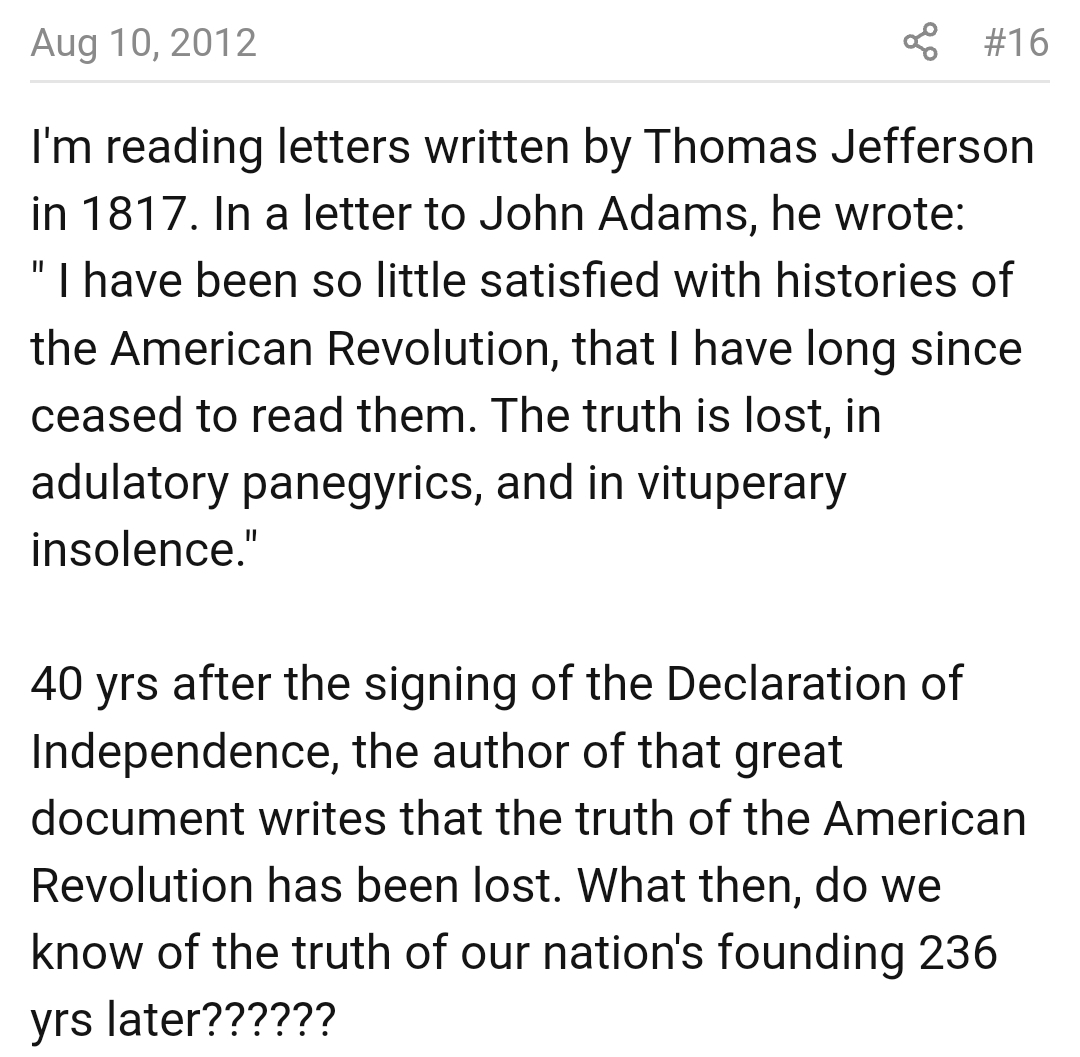> Thomas Jefferson in 1817. In a letter to John Adams, he wrote:
" I have been so little satisfied with histories of the American Revolution, that I have long since ceased to read them. The truth is lost, in adulatory panegyrics, and in vituperary insolence."

Giving blacks the right to vote created the inner-city ghettos where generations of blacks depend on the Welfare State.
What is there you still don't understand about why Thomas Jefferson was so disillusioned?
It seems a lot of people don't know how laws or sausages are made.
- replies
- 1
- announces
- 1
- likes
- 2
@threalist
Wasn't TJ also the one who said newspapers are full of lies and people who don't read them are better informed?
> “Nothing can now be believed which is seen in a newspaper. Truth itself becomes suspicious by being put into that polluted vehicle. The real extent of this state of misinformation is known only to those who are in situations to confront facts within their knowledge with the lies of the day. … I will add, that the man who never looks into a newspaper is better informed than he who reads them; inasmuch as he who knows nothing is nearer to truth than he whose mind is filled with falsehoods & errors.”
- Thomas Jefferson, 1807

Our founding is complete lies. A revolution and then 12 years of bs followed by a convention of foreign agents?
16 of the 55 delegates said they smelled a rat and refused to go.
After 1812, anyone left who wasn't in on it or profiting from it must've thought Madison was a British agent.
The British continued their political assassinations and dirty tricks all the way thru the 19th century.
I didn't even touch on the Aaron Burr British intelligence fuckery.
They also don't know about the bill of rights.
This was written by George Mason, one of the 16 delegate defectors, and they only added his bill/suggestion posthumously as appeasement.
> His writings, including substantial portions of the Fairfax Resolves of 1774, the Virginia Declaration of Rights of 1776, and his Objections to this Constitution of Government (1787) opposing ratification, have exercised a significant influence on American political thought and events. The Virginia Declaration of Rights, which Mason principally authored, served as a basis for the United States Bill of Rights, of which he has been deemed a father.
Civil Rights is just one of those failures in a long line of broken promises.